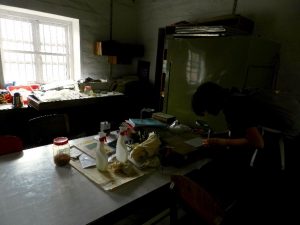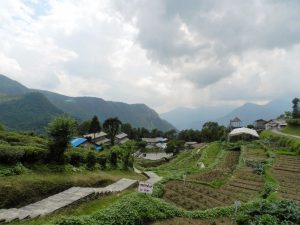
Simple, Not Struggling
By Lindsay Zapata
Coming from a corner of the world with access to state-of-the-art facilities, it is easy to make quick judgments about resources in developing nations. But organizations such as the Regional Agricultural Research Station (RARS) in Lumle, Nepal prove that the use of materials is more important than the materials themselves. One of the well-used lab spaces at the center – though the dimly-lit room is scattered chaotically with equipment – is home to exceptional work provided by researchers every day. The organization uses its large sites to train farmers on inventive techniques that look toward creating more sustainable food systems and better energy conservation efforts. The scientific innovation starting in rural Nepal sparks a global message: living simply does not mean living in struggle.

Fellow developing nations can be inspired by the RARS in Lumle to also create positive impact with what they have. All it takes is leaders with valuable skills to take the reins and teach others how to begin their own research efforts. I have really enjoyed using the term “makeshift” to describe the Nepali way of fixing problems and creating new solutions. If a tool is unavailable, somebody will just make it from environmental resources. If a tree is in the way of a major electrical cable outlet, someone will weave the cable line in and around branches to prevent cutting it down. The respect for nature and ability to solve problems in non-traditional ways is absolutely necessary when it comes to finding solutions that will last in the long-run.

Walking the beautiful rolling green hills and looking down at the Beghnas lake calls the need for sustainability like a ringing siren. We as an advanced nation must be open to being educated by the world’s smaller but mighty sustainable research centers.

